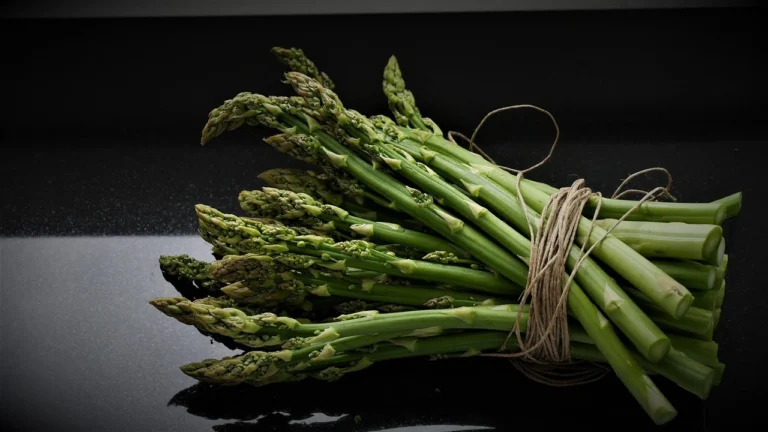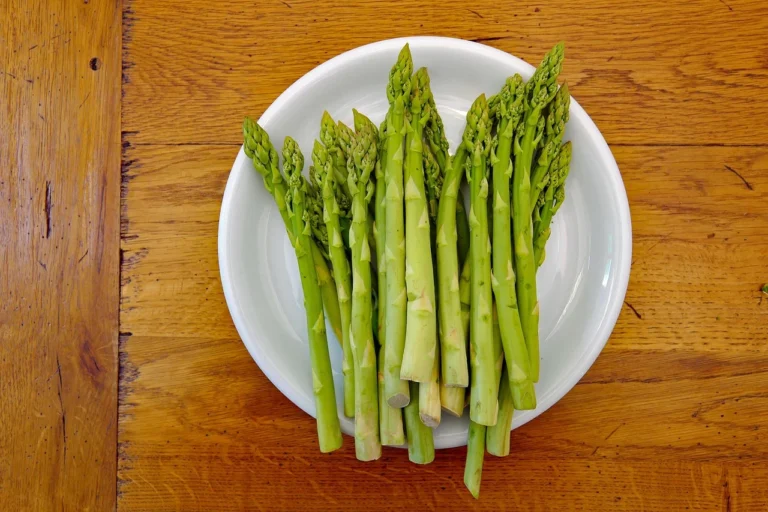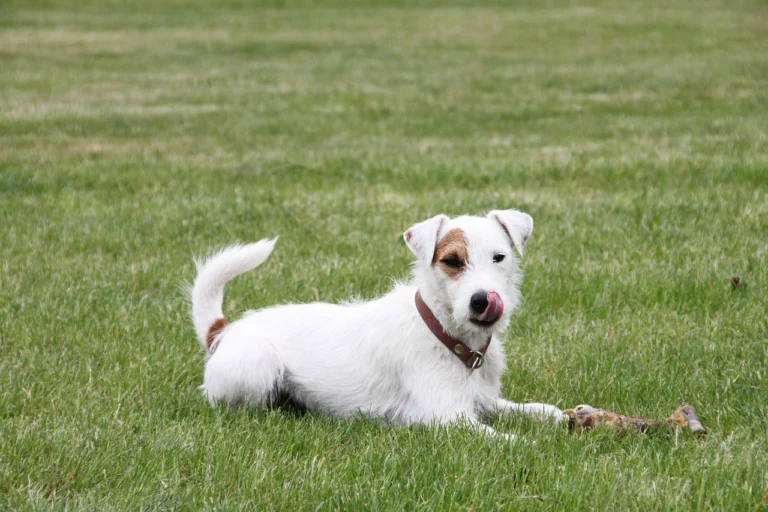Can Dogs Eat Cucumber Skin? What You Need to Know About Safety and Nutrition
I remember the first time I gave my rescue pup a slice of cucumber. His eyes showed pure curiosity. Many pet owners wonder about safe and healthy snacks, especially cucumber skin for dogs.
Dogs often look at our plates with hope. Knowing what foods are safe is key to giving them nutritious treats. Cucumbers, including the skin, are safe for dogs.
Cucumbers are refreshing for humans and can be a healthy treat for dogs too. They are low in calories and high in water. This makes cucumber skin a good addition to a dog’s diet if done right.
This guide will cover everything about giving cucumber skin to dogs. We’ll talk about the benefits and safety. You’ll learn how to add this crunchy veggie to your dog’s diet.
Table of Contents
Understanding Cucumbers as a Dog-Friendly Food
Cucumbers are a tasty and healthy treat for dogs. It’s important to know if cucumber skin is safe for them. These snacks are low in calories and can be a good part of a dog’s diet.
Cucumbers are more than just a crunchy veggie. They belong to the gourd family and are full of nutrients for dogs. Let’s look at why cucumbers are a great choice for your furry friend.
Basic Facts About Cucumbers
- Botanically classified as a fruit, though commonly considered a vegetable
- Composed of approximately 95% water
- Low in calories and high in hydration
- Available in multiple varieties worldwide
Nutritional Profile Overview
Feeding cucumber skin to dogs gives them a nutritious snack. Cucumbers have vitamins and minerals that help keep dogs healthy:
- Vitamin C: Supports immune system function
- Vitamin K: Promotes blood clotting and bone health
- Potassium: Supports muscle and nerve function
- Trace minerals: Zinc, iron, and calcium
Why Dogs Are Attracted to Cucumbers
Dogs like cucumbers for many reasons. They enjoy the crunchy texture, high water content, and mild taste. Cucumbers are also cool and refreshing, perfect for hot weather.
Remember to introduce any new food gradually and in moderation to prevent digestive upset.
Health Benefits of Feeding Cucumbers to Dogs
Cucumbers are great for dogs and many pet owners don’t know it. They offer more than just a tasty snack. They are full of nutrients and help keep dogs hydrated.
Feeding cucumbers to dogs has many benefits:
- Hydration Boost: Cucumbers are about 95% water. They’re perfect for keeping dogs cool on hot days.
- Weight Management: They’re low in calories and high in fiber. This helps dogs stay at a healthy weight.
- They’re full of vitamins like K, C, and potassium.
- They help with digestion thanks to natural enzymes.
Cucumber skin is also good for dogs. It’s safe and full of nutrients. Just make sure to wash it well and use organic cucumbers to avoid pesticides.
Dogs can have fresher breath and might even get some anti-inflammatory benefits from cucumbers. Giving them small pieces is a great way to keep them healthy and happy.
“Cucumbers can be a nutritious addition to your dog’s diet when introduced gradually and in moderation.” – Veterinary Nutrition Association
Always talk to your vet before changing your dog’s diet. Make sure cucumbers are right for your dog’s health needs.
Can Dogs Eat Cucumber Skin? Safety and Considerations
Many pet owners wonder if it’s safe to give their dogs cucumber skin. It’s important to understand the safety of cucumber skin for dogs.
Dog owners can safely give cucumber skin to their pets if it’s prepared right. The main thing is to clean it well and introduce it slowly to their diet.
Skin Preparation Guidelines
To make sure cucumber skin is safe for dogs, follow these steps:
- Wash cucumbers thoroughly under cool running water
- Remove any visible dirt or debris
- Consider organic cucumbers to reduce pesticide exposure
- Cut cucumber skin into small, manageable pieces
Potential Risks of Cucumber Skin
Even though cucumber skin is mostly safe, there are some risks:
| Risk Factor | Potential Issue | Prevention |
|---|---|---|
| Pesticides | Chemical residue | Wash thoroughly or buy organic |
| Choking | Large pieces | Cut into small chunks |
| Digestive Sensitivity | Potential stomach upset | Introduce gradually |
Benefits of Cucumber Skin for Dogs
Cucumber skin has many good points for dogs:
- High in fiber
- Low in calories
- Contains beneficial antioxidants
- Provides hydration
Always talk to your vet before changing your dog’s diet. Start with small amounts of cucumber skin to see how they react.
Nutritional Value of Cucumber Skin for Dogs
Exploring cucumber skin nutrition for dogs reveals a wealth of health benefits. Are cucumbers with skin good for dogs? Absolutely, yes. Cucumber skin is packed with nutrients that boost your dog’s health.
The nutrient profile of cucumber skin includes several key components that contribute to canine health:
- Fiber: Supports digestive health and helps regulate bowel movements
- Vitamin K: Promotes blood clotting and bone metabolism
- Potassium: Supports heart and muscle function
- Antioxidants: Helps combat free radicals and supports immune system
Cucumber skin nutrition for dogs is more than just hydration. It has more nutrients than the flesh. This thin layer is a great low-calorie treat for dogs.
When considering are cucumbers with skin good for dogs, vets suggest washing them well. This removes pesticides or wax. Always introduce new foods slowly and watch for any sensitivities.
Pro tip: Organic cucumbers provide the safest option for maximizing cucumber skin nutrition for dogs.
Safe Preparation Methods for Cucumber Treats
Preparing cucumber skin dog treats needs careful attention. When feeding cucumber skin to dogs, proper preparation is key. It ensures your pet’s safety and enjoyment. Let’s explore the best ways to make cucumbers into delightful canine snacks.
Proper Washing Techniques
Before making cucumber skin dog treats, cleaning is crucial. Follow these steps to prepare your cucumbers:
- Rinse cucumbers under cool running water
- Gently scrub the skin with a clean vegetable brush
- Pat dry with a clean paper towel
- Remove any visible dirt or debris
Cutting and Serving Sizes
The right cutting technique prevents choking and makes treats more appealing. Consider these guidelines:
- Cut cucumber into small, bite-sized pieces
- Adjust slice size based on your dog’s breed and size
- Aim for pieces no larger than 1/2 inch
- Smaller dogs need smaller pieces
Storage Recommendations
Proper storage keeps your cucumber skin dog treats fresh. Store them in an airtight container in the refrigerator. They stay fresh for 3-5 days. For longer preservation, freeze cucumber slices as a cool, refreshing treat.
Pro Tip: Always introduce new treats gradually and monitor your dog’s reaction to cucumber treats.
Potential Risks and Side Effects
When thinking about whether cucumber skin is safe for dogs, it’s important to know the risks. Cucumbers can be good for them, but eating too much can upset their stomachs.
Is cucumber skin safe for dogs? Mostly, yes, but they should only have a little. Dogs might face some issues if they eat too much cucumber skin:
- Digestive Upset: Eating too much cucumber can cause:
- Diarrhea
- Bloating
- Excess gas
- Choking Hazard: Cucumber skin can be dangerous for:
- Small dogs
- Dogs who gulp food quickly
- Older dogs with dental issues
Vets say dogs should only have treats like cucumber skin up to 10% of their daily food. This helps keep them healthy.
Look out for signs of allergies after giving cucumber skin to your dog:
- Excessive itching
- Skin rashes
- Vomiting
- Unusual lethargy
If your dog shows any of these signs, call your vet right away. They can help figure out what’s wrong.
Introducing Cucumber Skin to Your Dog’s Diet
Introducing cucumber skin to your dog’s diet needs careful steps. Cucumbers are healthy, but dogs may react differently to new foods. Start slow and watch your dog closely for their safety and comfort.
Step-by-Step Introduction Process
Here’s how to introduce cucumber skin to your dog’s diet:
- Start with tiny, bite-sized pieces of cucumber skin
- Ensure the cucumber skin is thoroughly washed
- Remove any potential pesticide residues
- Cut the skin into small, manageable portions
Monitoring Your Dog’s Reaction
Watch your dog closely when they try cucumber skin for the first time. Look for signs of upset stomach or allergies.
| Reaction Type | Symptoms to Watch | Recommended Action |
|---|---|---|
| Mild Digestive Upset | Soft stool, gas, mild vomiting | Reduce portion size or discontinue |
| Allergic Response | Itching, swelling, difficulty breathing | Immediately stop feeding and consult veterinarian |
| Positive Tolerance | Normal digestion, no adverse reactions | Gradually increase portion size |
Every dog is different. What works for one might not work for another. Patience and close observation are key when feeding cucumber skin to dogs.
Recommended Serving Guidelines
Cucumber skin should be an occasional treat, not a main part of your dog’s diet. Here are some guidelines:
- Small dogs: 1-2 small pieces per week
- Medium dogs: 2-3 small pieces per week
- Large dogs: 3-4 small pieces per week
Always talk to your vet before changing your dog’s diet, especially with new foods like cucumber skin.
Creative Ways to Serve Cucumbers to Dogs
Feeding cucumber skin to dogs can be fun! You can make these veggies into tasty treats that are good for your dog. Here are some ways to make eating cucumbers exciting for your pet.
Freezing cucumber slices is a cool summer snack. It’s perfect for hot days. Your dog will love the refreshing taste and the health benefits of cucumber skin.
- Frozen Cucumber Rounds: Slice cucumbers thinly and freeze for a crunchy treat
- Cucumber Puree Topper: Mix pureed cucumber skin into regular dog food
- Cucumber Dice Mix-In: Chop cucumber skin into small cubes as a food topper
When making cucumber treats, wash the cucumber well. This removes dirt and pesticides. Choose organic cucumbers for the best nutrition and safety.
| Treat Type | Preparation Method | Serving Suggestion |
|---|---|---|
| Frozen Cucumber Chips | Thinly slice with skin on | Freeze for 2-3 hours before serving |
| Cucumber Puree | Blend cucumber with skin | Mix 1-2 tablespoons into regular meal |
| Cucumber Training Treats | Cut into tiny cubes | Use as low-calorie reward during training |
Your dog will love these creative cucumber treats. They turn a simple veggie into a fun and healthy snack. Always introduce new foods slowly and watch for any bad reactions.
“Variety is the spice of life, even for our four-legged friends!” – Canine Nutrition Expert
Signs of Cucumber Intolerance in Dogs
Not all dogs react the same to cucumber skin. While it’s usually safe, some dogs might have digestive issues. Knowing the signs of intolerance can help keep your dog healthy.
Common Symptoms to Watch For
Watch for these signs when giving cucumber skin to your dog:
- Sudden changes in stool consistency
- Persistent vomiting
- Excessive gas or bloating
- Abdominal discomfort
- Reduced appetite
Identifying Serious Reactions
Most dogs are fine with cucumber skin, but some might react badly. Here’s a guide to help you:
| Reaction Level | Symptoms | Recommended Action |
|---|---|---|
| Mild | Temporary digestive upset | Monitor and reduce cucumber intake |
| Moderate | Repeated vomiting or diarrhea | Stop feeding cucumber, hydrate |
| Severe | Persistent symptoms, lethargy | Immediate veterinary consultation |
When to Contact Your Veterinarian
If your dog shows prolonged or intense symptoms after eating cucumber skin, call your vet right away. They can ensure your pet’s safety and find any underlying problems.
Special Considerations for Puppies and Senior Dogs
Feeding cucumber skin to dogs needs careful thought at different ages. Puppies and senior dogs have special needs that affect how they can eat cucumber skin safely.
For puppies, adding cucumber skin needs extra care. Can puppies eat cucumber skin? It depends on their age. Vets say wait until puppies are fully weaned and eating solid foods before giving them new treats.
- Wait until puppy is fully weaned
- Start with tiny, bite-sized pieces
- Monitor for any digestive reactions
Cucumber skin is great for teething puppies. Frozen cucumber spears can soothe sore gums. Make sure the pieces are small and watch them to avoid choking.
Senior dogs need special care with cucumber skin. Their digestive systems might be more sensitive. Start with small amounts and watch for any signs of trouble.
| Dog Life Stage | Cucumber Skin Recommendations | Portion Size |
|---|---|---|
| Puppies | Small, soft pieces | 1-2 tiny pieces |
| Senior Dogs | Soft, well-washed pieces | 2-3 small slices |
Always talk to your vet before adding new foods to your dog’s diet, especially for puppies and senior pets.
“Moderation and careful observation are key when feeding cucumber skin to dogs of any age.” – Veterinary Nutrition Expert
Comparing Cucumber Skin to Other Vegetable Peels
When thinking about cucumber skin for dogs, it’s important to know how it compares to other vegetable peels. Not all vegetable skins are safe for dogs. Cucumber skin is a safer choice when prepared right.
Let’s look at the main differences between cucumber skin and other vegetable peels for dogs:
- Cucumber skin is low in calories and high in nutrients
- Unlike potato or onion peels, cucumber skin does not contain toxic compounds
- The skin provides additional fiber and vitamins for dogs
| Vegetable Peel | Safety for Dogs | Nutritional Value |
|---|---|---|
| Cucumber Skin | Safe when washed | High in vitamins K and C |
| Potato Peel | Unsafe (contains solanine) | Low nutritional benefit |
| Apple Peel | Safe in moderation | Rich in antioxidants |
| Carrot Peel | Safe and nutritious | High in beta-carotene |
Are cucumbers with skin good for dogs? Yes, they are. Cucumber skin adds extra nutrients and can be a healthy snack. Always wash the cucumber thoroughly to remove potential pesticides or chemicals.
Remember, it’s all about moderation when adding new foods to your dog’s diet. Cucumber skin should be given as an occasional treat, not a main food. If your dog shows signs of digestive issues or allergies, see your vet right away.
Conclusion
When thinking about whether dogs can eat cucumber skin, pet owners need to be careful. Cucumber skin can be a healthy snack for dogs if given in the right amount. It’s important to consider your dog’s health needs before giving it to them.
Feeding cucumber skin to dogs comes with both risks and benefits. Small, clean, and pesticide-free pieces can add hydration and nutrients. Always watch how your dog reacts to new foods, like cucumber skin, to make sure they like it.
Getting advice from a vet is key when adding new foods to your dog’s diet. While cucumber skin is healthy, it shouldn’t replace their regular dog food. Talking to your vet can help you decide if it’s good for your dog.
Every dog is different. What’s good for one dog might not be good for another. Watching your dog closely, preparing food properly, and getting vet advice can help you know if cucumber skin is right for your dog.







